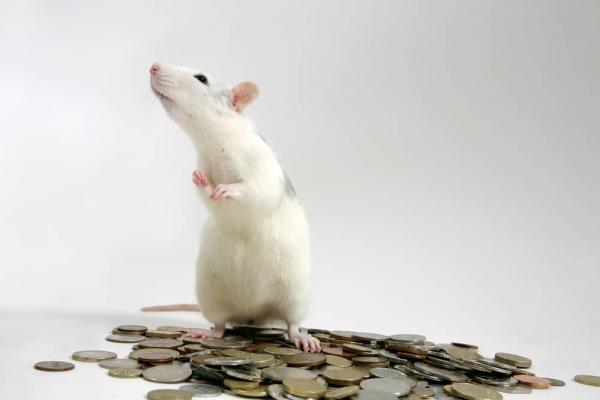
When it comes to seeking financial advice, people are likely to turn to successful businesspeople like Warren Buffett or Peter Lynch, or personal finance gurus like Dave Ramsey or Robert Kiyosaki. However, the best advice on handling money can actually be learned from a mouse in a maze.
From years of studying the subject of personal finance, I have learned that the key to success with money has nothing to do with what you know. It has nothing to do with how much money you make. It has nothing to do with how much education you have. The key to success with money is almost all about behavior and habit - which is where we can learn from mice in a maze.
In the 1990s, scientists at the Massachusetts Institute of Technology monitored wired-upped rodents' brains as they moved their way through a maze searching for a chocolate reward. To begin with, the scientists noticed furious brain activity as the rodents analyzed sight, sound and scent to find the chocolate. They ran the experiment hundreds of times with the reward always located at the same location. By the time a week had passed, the brain activity had decreased. Even the brain structures related to memory were quiet, yet the rodents were able to run straight to the chocolate without fail. Did this experiment tell us that the rodents could find the chocolate without thinking, or even without remembering where it was? Yes, the rodents were able to complete the task entirely from habit - no thinking or memory required.
This story is among the many fascinating examples found in the national bestseller The Power of Habit by Charles Duhigg. The take-away message from this book that applies to how you handle money is this: if you make something a habit, you don't have to worry about making good choices with your money because you automatically take care of them. So be like the mice and put your brain on autopilot. Here's how:
Automate your plans
Before the start of each month, schedule a family meeting to plan your expected income and expenses for the next month. Make this a habit by doing it each and every month.
Create an emergency fund
Always save and replenish an emergency fund of at least $1,000. Make this a habit by doing an automatic transfer from your checking account to your savings account. A lot of people get in financial trouble because they don't have a way to pay for unexpected expenses. An emergency fund is the solution for this; not having one is an invitation to debt and stress.
Carry more greenbacks
Make a habit of spending cash for impulse purchases. It is too easy to overspend money you can use for more important things like your emergency fund and your retirement needs if you use credit cards or even debit cards for all your purchases. If you have a habit of using separate cash envelopes for food, entertainment, and clothing, you can't overspend.
There is nothing wrong in buying financial books and downloading apps to be more educated about your money choices. But sometimes it comes down to putting your habits on cruise control. Try being like the mouse in the maze and follow savvy financial behaviors until they become permanent habits. The reward will be more than just a piece of chocolate - maybe it will be a stack of money.

